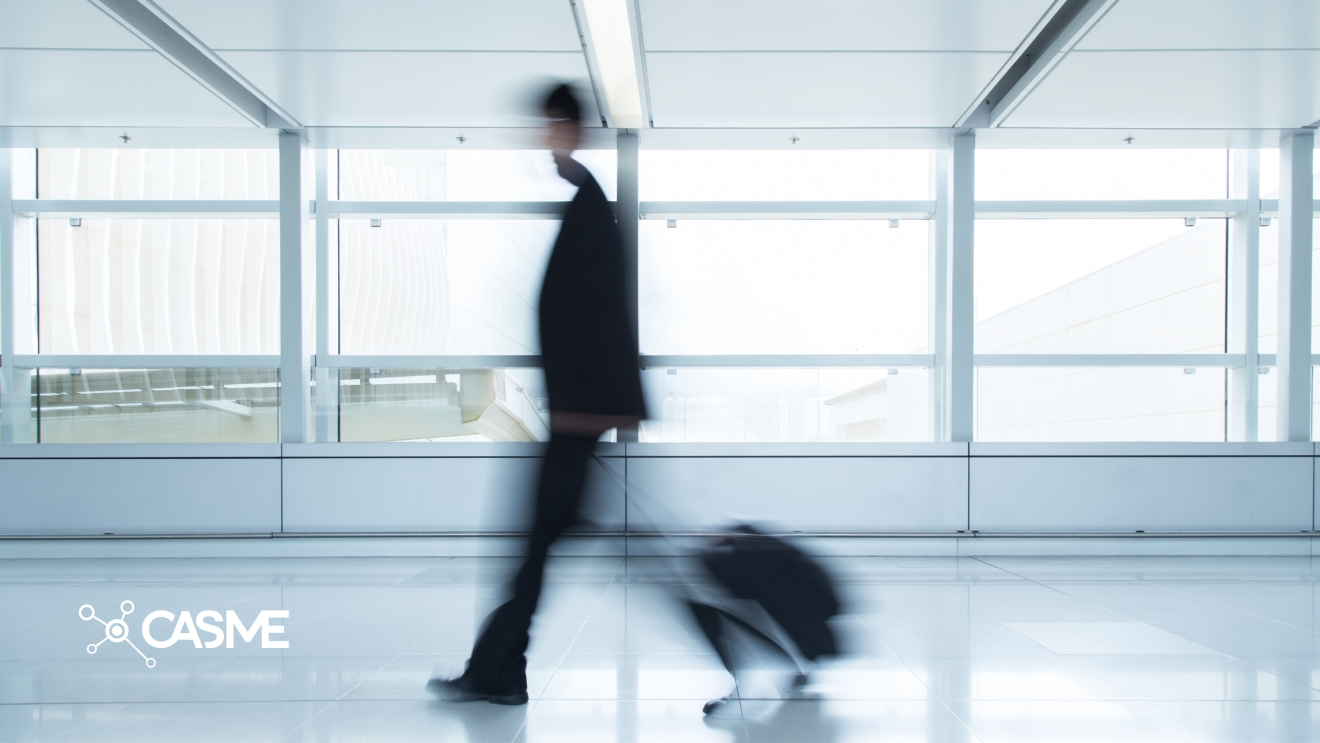
Geoff Allwright, who recently retired from Airbus Group UK and has over 20 years of procurement experience, has recently joined the CASME facilitation team, where he will specialise in facilitating CASME member events across the business travel and event management categories.
In this blog piece, Geoff offers his views on what 2021 might hold for business travel following the pandemic.
"While companies around the world have planned and implemented models for safe working during the pandemic, the thought of travelling to another country for a two-hour meeting is far from business leaders’ minds; or to put it another way 'What’s the point of collecting airline reward points if we’re unable to fly anywhere!'
However, we all know that the need for business travel will return, in some form, at some point.
It will be at least three years before demand climbs back to 2019 levels. When that starts to happen, will it be 'business as usual' for the corporate travel industry? Or will it offer something new and possibly better?
For the foreseeable future, travellers will have to cope with less availability and diminished choice of flights, hotels, restaurants and car rental options, as many travel-related businesses have or will cease trading, and those that remain will be operating reduced services. However, there could be a greater demand for travel services and suppliers that offer travellers a greater feeling of security from the virus; for example, airline lounge use, hotels with large open public spaces and guest-room windows that open.
In the meantime, here is a rundown of some ideas and key indicators for the future of business travel for 2021 and beyond:
Hotels
Hotels will be reluctant to open their gyms, restaurants and other ancillary services if the cash return is minimal, particularly in less frequented business cities such as Detroit and Canberra. Those operating in holiday resorts, such as Rome, Singapore and Miami, will be aiming more of their services towards the tourist market, as it seems clear that holiday travel will bounce back quicker than business travel. There could be a shift towards ‘bleisure travel’, where business travellers combine their trip with leisure stays, to the advantage of hotels in more touristy areas. The ‘average nights per guest’ stay may rise, as employees combine their meetings in one city, so they do not have to travel so often.
Flights
With redundant aircraft being stored in the desert, or parked up at manufacturer’s sites, it is clear that the future availability of flights will be dramatically reduced. No longer will there be 15 flights per day between Paris and Frankfurt, or one flight every hour from London to New York. Travellers will have fewer choices, as airlines examine every seat’s revenue potential in microscopic detail. Travel buyers will need to skilfully negotiate prices on their key routes, as suppliers look to maximise each route’s profit. These buyers will also need to influence their organisation’s policies regarding the class of air travel for employees, and balance their travel budgets with traveller’s welfare needs. Duty of care considerations will play a big part in new policies if companies want their employees to fly, because business class may be demanded as the safest option.
Car Rental
In the short term, drivers will need to adapt to waiting longer for the delivery of rental cars due to the presence of fewer local branches. Rental companies will switch to using digital solutions such as phone-enabled car access, making it possible for cars to be left on roadsides and at customer sites, for use by multiple renters. Rental costs will rise, as more valeting and lower fleet sizes will negatively impact suppliers’ unit costs and profitability. 'Bleisure' (mixed business and leisure) usage will outweigh corporate requirements, so business travel buyers will have less influence on the car rental supply market.
Travel Management Companies (TMCs)
Changes were happening in the business travel management market before the pandemic; corporate travel category managers were beginning to question whether TMCs should oversee the whole process. Many new start-up travel technology companies were showcasing products that would cut out the TMC middleman, resulting in a significant shift to user-friendly online travel booking, with less reliance on older technologies such as the Global Distribution System (GDS). This squeeze on the margins of the TMCs places a greater reliance on them to offer more bespoke services. Travel buyers should expect to pay for all the TMC’s services on a menu-type basis; for example, reporting, data provision, assisting with supplier negotiations, etc., and the TMC pricing model will have to change from being a transaction-based fee to a management fee or a subscription.
Ultimately, travellers and their managers will be asking themselves, 'Why do I need to travel on business? Do I need to attend that conference or meeting in person?' The answers to these questions will determine the future shape of business travel."
Geoff Allwright, November 2020
Back to News



